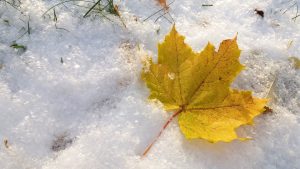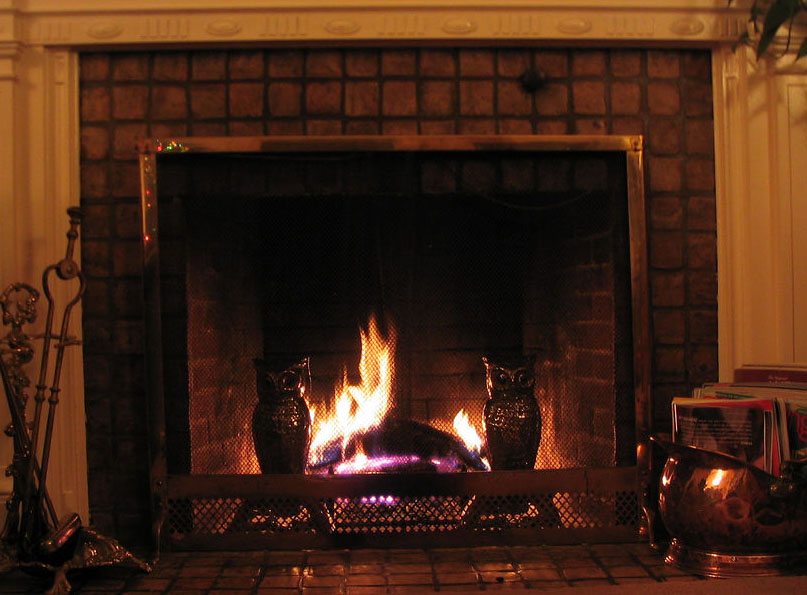 You might want to ignore the fact that winter is fast approaching, but now is the perfect time to to start preparing your home for the cold months ahead. Here’s a checklist of “to-dos” so your home is ready for the chilliest time of year.
You might want to ignore the fact that winter is fast approaching, but now is the perfect time to to start preparing your home for the cold months ahead. Here’s a checklist of “to-dos” so your home is ready for the chilliest time of year.
Furnace inspection. Have a certified heating, ventilation and air conditioning (HVAC) contractor inspect your furnace. If your furnace is 15 years or older, you may want to consider upgrading to a newer system.
New filters. A clean filter helps your HVAC system operate at its best and last longer. You should change your filter as often as every three weeks to as little as every six months. This depends on various factors, like how often you actually use your system to what kind of unit you have (room air conditioners, gas furnaces, etc.) If you have pets or allergies, you may need to clean and replace your filters more often.
Adjust your thermostat. According to Energy.gov, you should set your home to 68 degrees when you are home and awake. But when you’re asleep or away, you can turn it lower. Our friends at the Citizens Utility Board in Minnesota, citing the Energy Department, say you can turn the thermostat down 10 degrees from what you had it during the day when you were at home. Setting your thermostat back about 10 degrees for at least eight hours a day can save you almost 10 percent on your bill over the course of a year. NEVER go below 55 degrees, because you could freeze your pipes. (Note: If your home is WiFi-enabled, a smart thermostat can help control your home’s temperature and cut heating and cooling costs by up to 20 percent.)
Outdoor faucets off. Running or leaky outside faucets can cause pipes to freeze and explode. Flushing outside faucets before winter is a great way to remove any excess water that could freeze up later. You may even want to consider purchasing an insulated cover for each outdoor faucet. Read CUB’s blog on properly draining faucets.
Keep warm air in, winter cold out. Weather-strip doors, caulk windows and install storm windows if you have them. A door guard or sweep can help fill the gap at the bottom of your front and back doors. You can find most of these items at local hardware stores.
Let the sunshine in. During the day, pull curtains back and open the blinds to allow sunlight to flow in, providing cost-free warmth.
Tree branch trimming. Cut down any extended branches that can get tangled with wires and freeze, causing power outages.
Clean gutters. If your gutters are filled with build-up like leaves, they can damage your home’s siding and roofing, causing cracks and letting more cool air in.
Set your water heater to 120 degrees (warm setting). Cover it with an insulated blanket you can purchase at a hardware store.

Prepare the fireplace. Make sure your fireplace is inspected and cleaned before you use it in the winter. When you’re not using your fireplace, make sure the damper is closed to prevent warm air from escaping (taking your money with it, too!)
Reverse ceiling fans. In the winter, run the fan clockwise (from your position, looking up at it) to pull warm air down from the ceiling and keep it circulating in your house.
Cook smart. Try baking multiple dishes at once to save time on using the oven. As you cook, keep pots and pans covered with lids to reduce cooking time. The cold months are the perfect time to put your crock pot and microwaves to use, as both use less energy (but still can prepare tasty meals).
Keep your refrigerator and freezer filled. By keeping your fridge full, you actually help prevent as much warm air from entering each time the door opens and closes. If you don’t have (or don’t want) a lot of food taking up room, fill some milk jugs with water and place them in the fridge.
Bonus tip: You may not exactly be able to tell if your home’s heating and cooling systems are operating at their best. A home energy audit can pinpoint specifically what upgrades need to be done and why. This saves you money in the long run and makes your home more energy efficient.
Check out CUB’s “Clean Energy” page for more information on your utility bills this winter season.

